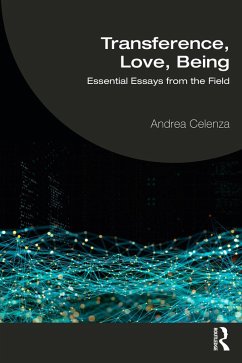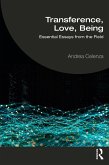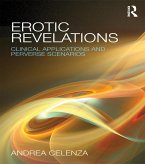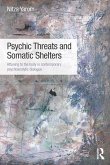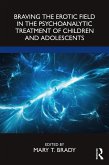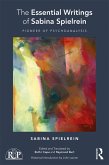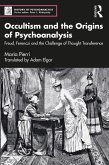Dieser Download kann aus rechtlichen Gründen nur mit Rechnungsadresse in A, B, BG, CY, CZ, D, DK, EW, E, FIN, F, GR, HR, H, IRL, I, LT, L, LR, M, NL, PL, P, R, S, SLO, SK ausgeliefert werden.
Rosemary H. Balsam, FRCPsych (Lond), MRCP (Edinburgh); Yale Medical School; Training and Supervising Analyst, Western New England Inst. for Spa; author of Women's Bodies in Psychoanalysis (Routledge, 2012), Winner of Sigourney Award for Excellence in Psychoanalysis, 2018.
In these essays Andrea Celenza concentrates on those deep affective components that can at the same time constitute the source, the engine, the vital energy of the analytic interchange, as well as the problematic area of human beings in general, and of analytic patients in particular. The reader will find in this book a broader, more exploratory, and at the same time less frightening way of observing and thinking about this area. I believe that this volume really contributes to a useful advancement of the psychoanalytic instrumentarium in a traditionally hostile and dangerous field. Andrea Celenza has been able to [adopt] an authentic scientific attitude and with a natural, happy integration of competence and humanity, without defensive academicism or hasty, scholastic axiomatic formulations; this is perhaps one of the reasons why her work reads so well and with pleasure, it is clear, touching and substantially convincing.
Stefano Bolognini, psychiatrist/psychoanalyst, Bologna, Italy; Past President, International Psychoanalytic Association and Italian Psychoanalytic Society; author of Secret Passages: The Theory and Technique of Interpsychic Relations (2010), Psychoanalytic Empathy (2004) and Vital Flows Between Self and Not-Self (2022, Routledge).
With Transference, Love, Being: Essential Essays from the Field, Andrea Celenza gives us a new chapter in her extraordinary journey in psychoanalysis. That it is rare and remarkable can be immediately guessed from the richness and variety of topics addressed with depth but without lengthy academicism. Interwoven with gripping clinical vignettes, Celenza translates sophisticated theorizing into a vitalized and relevant real-world grounding. Among the most intriguing essays: 'The historically fetishized couch', 'The inadvertent pluralist', 'Diffuse attentional set'... and then, again, 'The phenomenal experience of touch', 'To be in it with' and, somehow affirmative and liberatory '"Yes and..." dreams'. Faithful to her Italian origins, she offers the menu of an exceptional chef, extremely careful to combine the best of tradition with experimentation with new flavors and aromas. That there really is a bit of Mediterranean cuisine is immediately apparent from the word 'field' that significantly appears in the subtitle. Transference, Love, Being testifies to the vitality and creativity of the author and of psychoanalysis. I highly recommend this remarkable book to all professionals in the field of the treatment of mental suffering, but also to those who work in the humanities or who are curious to know more about contemporary psychoanalysis.
Giuseppe Civitarese, Psychoanalyst, Pavia, Italy and author of Sublime Subjects: Aesthetic Experience and Intersubjectivity in Psychoanalysis (Routledge, 2017).
Lieben, Erleben, Denken, To love, to experience within and between, and to think. Andrea Celenza is a master of all of these aspects of analysis and of being a human being. In this fine work, she shows us all how she does this and in so doing teaches us all more about what analysis is capable of being and doing. As in her previous work, we are treated to the way an incredibly talented clinician works. Every analyst and all therapists will grow by reading this book. Every analysand and every client and every patient will benefit as well.
Jim Herzog, Boston Psychoanalytic Society and Institute and author of Father Hunger (Routledge, 2001).
Reading this book is the literary equivalent of having dinner at the best tapas restaurant in town: You leave happy and full, having had a lovely time sampling a wide selection of appetizers, each one a little treat of its own. Celenza offers us 37 very brief essays on the subject of love in all the guises it takes in life and psychoanalysis--transference love, erotic desire, romantic love, and so on. But the length of these little pieces doesn't limit their substance. The remarkable thing is that each one is satisfying. Celenza explodes the conventions that usually govern the length of essays without sacrificing a deep engagement with the issues she tackles. She uses the brevity of form she has adopted to skip over the usual preparatory paragraphs and plunge us directly into what she wants to tell us. The result is a highly stimulating collection that will delight clinicians, patients, teachers and scholars alike.
Donnel Stern, William Alanson White Institute and author of The Infinity of the Unsaid: Unformulated Experience, Language and the Nonverbal (Routledge, 2018)

